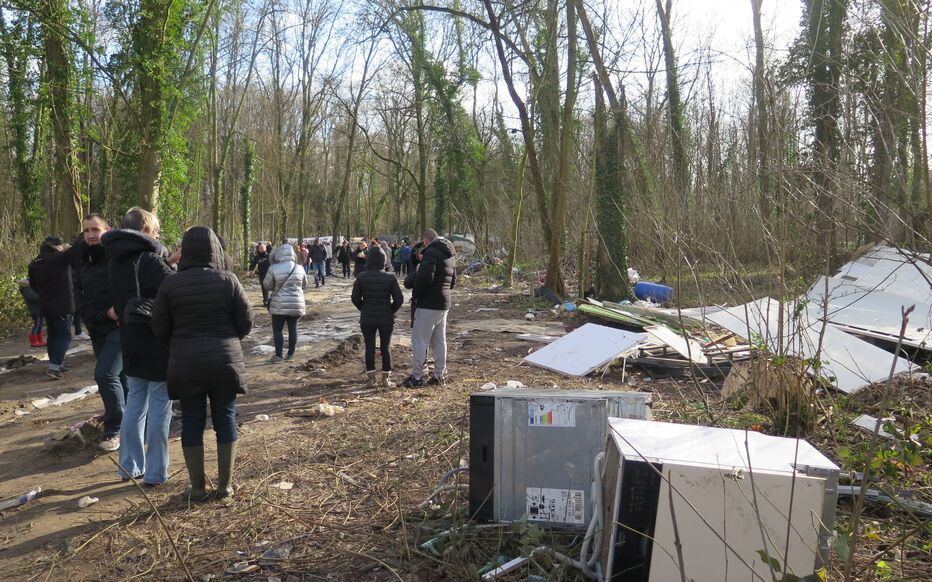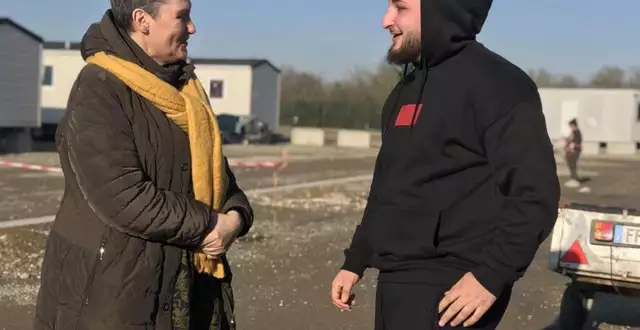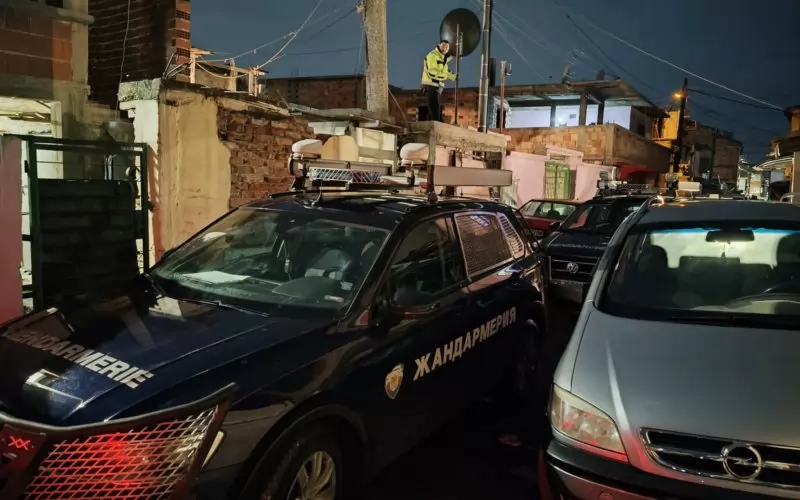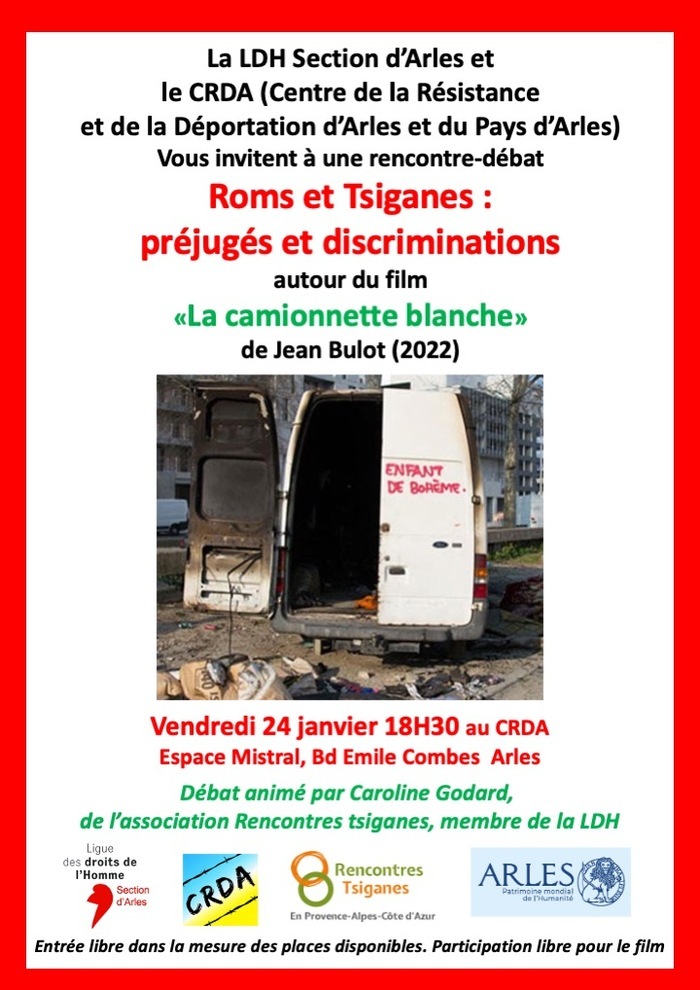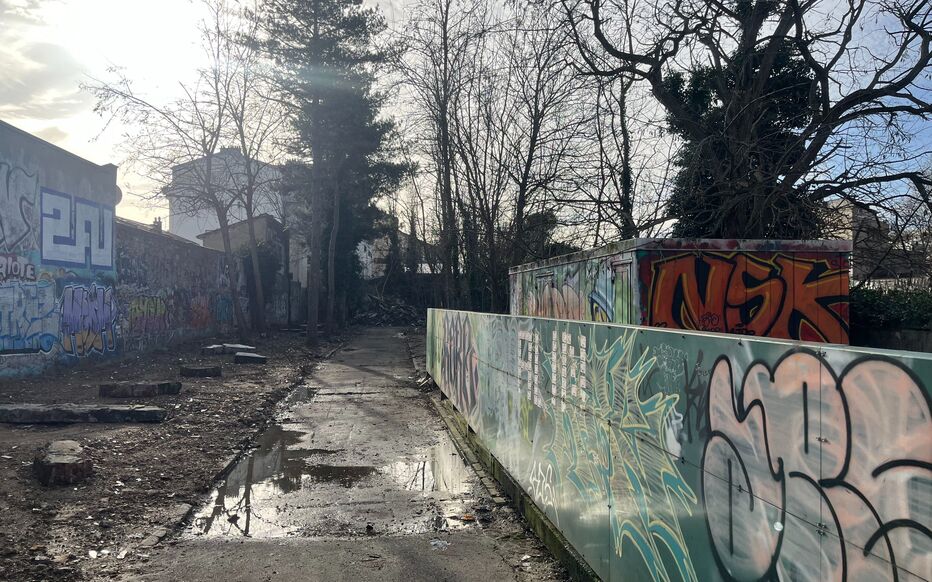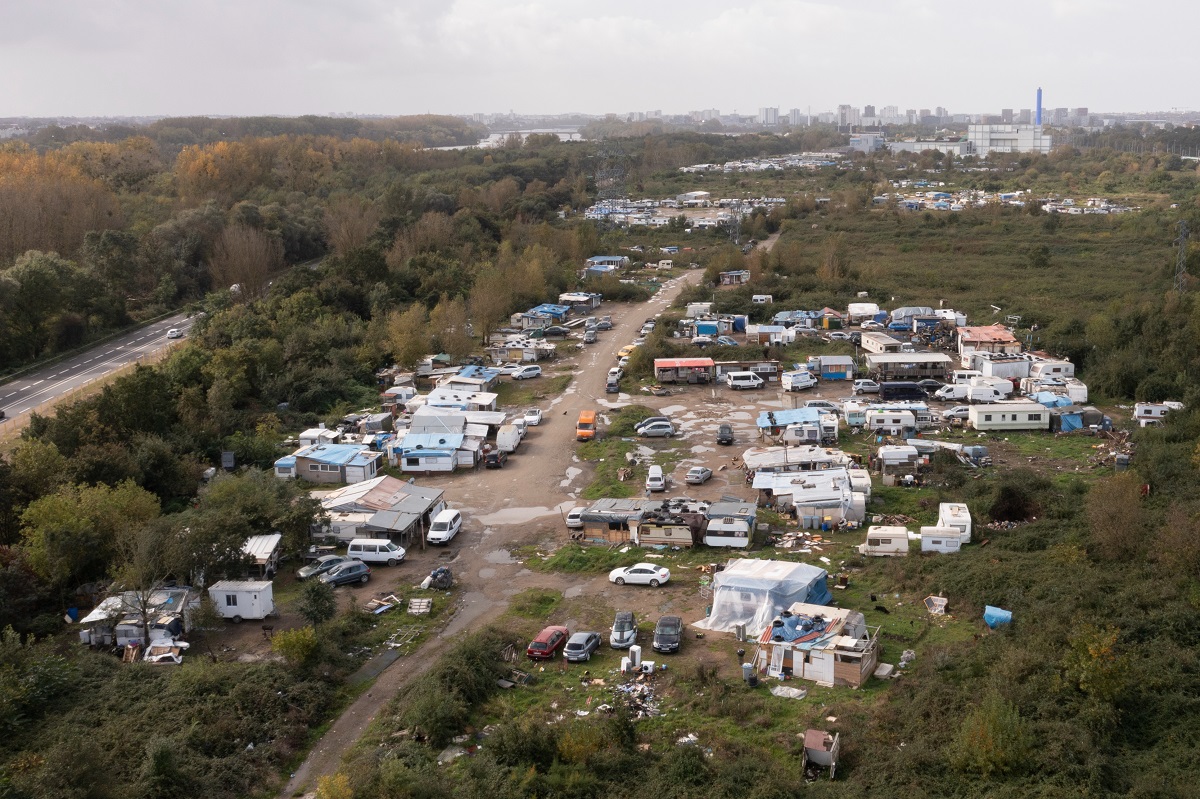Vermorel (2014) of the Midi Libre spoke to the prefect of Nîmes, Didier Martin. Martin called for the residents of an illegal settlement next to the Saint-Gilles highway to leave the place immediately. The argument was enforced with police presence. Only recently before this, the collective Solidarité Roms, was assured by Julie Bouaziz, the head of the cabinet of Nîmes, that there was no set date for the eviction. Martin indicates in the interview that the eviction is not only done for regulatory reasons, but primarily because of the railway project “Oc’via”, which is disturbed by the settlement. In March, a judgment by the district court of Nîmes was issued calling for the families to immediately leave the area in question. The construction company Oc’via agreed in their own negotiations with the families that they could stay on the area until December 2013. Now the company has suggested a replacement area to the families, not far from the current location, in order that the children can continue to go to school. – A major part of the French press focuses exclusively on problem cases that arise in connection with Rroma. That there integrated Rroma living in France, ranging from 100,000 to 500,000 people, depending on the estimates, is almost never mentioned. Also, there are Gens du Voyage in France that form their own ethnic group and are not related to the Rroma. They took up a travelling lifestyle in response to the political upheavals in Europe in the 15th century. Most Rroma are permanently sedentary (see Duret 2014 Midi Libre 2014).
In Villeurbanne, the police evicted an occupied house with around 100 Romanian Rroma, the newspaper Libération (2014) reports. Half of the residents are children. The prefecture asked for the re-housing of families with children under the age of three: “The organisation in charge did not know if all families would be relocated, saying that a census by the department direction of social cohesion had previously been made to find solutions. “The prefect of Rhone requested the relocation of families with children under three years,” the prefecture indicated.”
Bertrand (2014) reports from a slum on the outskirts of Marseille, where around 20 Rroma families try to integrate and are at risk of forced evictions. Cendrine Labaume from Médecins du monde reports that Rroma are increasingly victims of acts of violence committed by uninhibited residents: “the Roma are by far the most affected by the violence. National and local political discourses have uninhibited speech, and sometimes acts.” The statement is followed by spiteful and openly racist comments from residents of the settlement, who complain about dirt, noise and lack of adaptation of the Rroma and openly display their disrespect. The resident Rroma try to live in an as dignified way as possible. The order inside the huts is not seen from the outside, only the disorder. The increasing neglect of the settlements is partly due to the high frequency of evictions that hinder the establishment of an appropriate infrastructure, which leads to illegal tapping of electricity and water. The evictions are said to have somewhat improved since the interministerial circular from the 26th of August 2012. The government and aid organizations are now supposed to keep a minimal standard of hygiene, health care and safety in the settlements. However, according to Bertrand, this support meets the opposition of many local residents, who want to get rid of the Rroma.
Courtel (2014) of Nordéclair reports on a newly created Rroma settlement in Roncq, in northern France. Her article highlights the usual picture: Enraged residents, led by the mayor Vincent Ledoux, impoverished Rroma and the will to get rid of them as soon as possible. Courtel does not even tries to contextualize, but limits herself entirely to the reporting of “facts” about the occupation of the location, which was tolerated by the supra-regional and national authorities. She perpetuates the notion of asocial, non-integrable Rroma: “Meanwhile, the camp becomes a sewer. This land has turned into open battle space, a dirty slum” [Vincent Ledoux]. Unrest has taken hold of the residents living closest and the employees of the commercial area. […] A complaint was filed to establish a “clearly defined timeframe” [for the eviction]. The court authorizes the use of public force. But the prefecture did not respond. The timeframe passes, it is impossible to implement an evacuation. During the municipal council of the 17th of December, the represent ask for the help of the Government… the request remains unanswered.”
Ouest-France (2014) reports in a short article on three Rroma settlements in Saint-Herblain that were searched by the police. The occasion for the comprehensive police control was the theft of metal and metal cables that is attributed to Rroma from the settlements. As a result of the raid a Rrom was temporarily arrested. By not reflecting about discrimination against the Rroma, this article perpetuates ethnic stereotypes about criminal Rroma. Ethnic stereotypes build a great obstacle to the successful integration of this minority.
- Bertrand, Olivier (2014) Roms, vie entrouverte à Marseille. In: Libération online vom 31.1.2014. http://www.liberation.fr/societe/2014/01/31/roms-vie-entrouverte-a-marseille_976962
- Courtel, Anne (2014) Roncq: l’inextricable «problème Roms» s’enlise. In: Nordéclair online vom 4.2.2014. http://www.nordeclair.fr/info-locale/roncq-l-inextricable-probleme-roms-s-enlise-ia51b1954n356845
- Duret, Tony (2014) Expulsion des Rroms: Le Préfet veut faire appliquer la décision de justice “dans les meilleurs délais”. In: Objectif Gard online vom 4.2.2014. http://www.objectifgard.com/2014/02/04/expulsion-des-roms-le-prefet-veut-faire-appliquer-la-decision-de-justice-dans-les-meilleurs-delais/comment-page-1/
- Libération (2014) Expulsion de Roms occupant un squat à Villeurbanne. In: Libération online vom 4.2.2014. http://www.liberation.fr/societe/2014/02/04/expulsion-de-130-roms-d-un-squat-a-villeurbanne_977713
- Midi Libre (2014) Gard : les Roms doivent quitter Caissargues avant mercredi matin. In: Midi Libre online vom 4.2.2014. http://www.midilibre.fr/2014/02/04/nimes-les-roms-doivent-quitter-le-campement-de-caissargues-avant-mercredi-matin,817727.php
- Ouest-France (2014) Vols de métaux. Trois camps roms investis à Saint-Herblain. In: Ouest-France online vom 4.4.2014. http://www.ouest-france.fr/vols-de-metaux-trois-camps-roms-investis-saint-herblain-1904995
- Vermorel, Laurent (2014) Nîmes: chantier de la LGV oblige, “aujourd’hui, les Roms doivent quitter les lieux”. In: Midi Libre online vom 5.2.2014. http://www.midilibre.fr/2014/02/04/aujourd-hui-les-roms-doivent-quitter-les-lieux,817824.php
